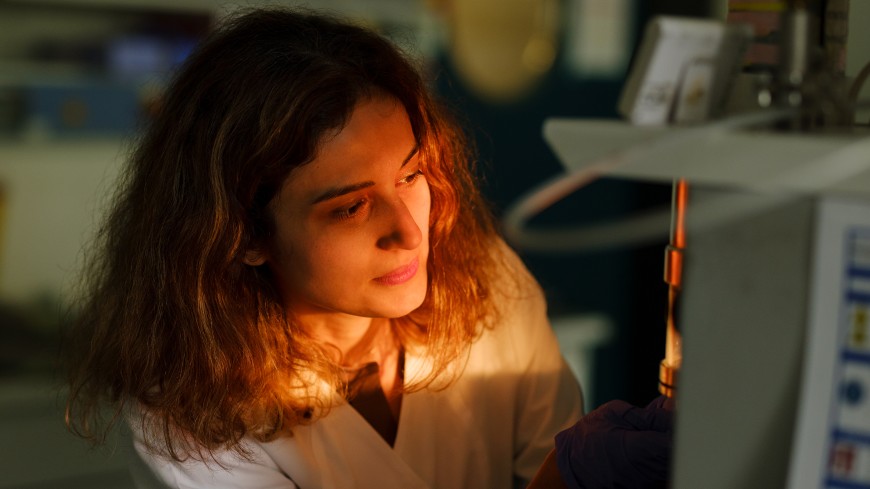Sustainable, safe, affordable: researching innovative magnets
Dr. Pelin Tozman receives ERC Starting Grant totalling 1.5 million euros
2024/09/05
Permanent magnets are crucially important for green technologies. However, their production requires expensive and environmentally harmful raw materials. That is why material scientist Dr. Pelin Tozman from TU Darmstadt is researching resource-friendly alternatives. Her project, MAG-TOOL, is now receiving a Starting Grant totalling 1.5 million euros from the European Research Council (ERC) for five years.

Since their invention in 1984, permanent magnets based on Nd-Fe-B (neodymium, iron and boron) have been the material of choice for high-performance applications. They are now used, for example, in electric vehicles and wind turbines. However, heavy rare earths such as dysprosium and terbium – highly critical and scarce raw materials – are used to operate the magnets at temperatures of over 100°C. This makes the technology very costly, environmentally damaging and with supply chain risks.
Despite decades of research, no practical alternative to Nd-Fe-B magnets has been found. Tozman now wants to change that. She is researching magnets with components made mainly from iron along with samarium, some of which even have better magnetic properties than Nd-Fe-B and don’t require heavy rare earths and have less light rare earth. The researcher intends to optimise the magnetic properties of the components with innovative alloys.
As part of her MAG-TOOL project, Tozman, who works in the Functional Materials division (Department of Materials and Geosciences) under the leadership of Professor Oliver Gutfleisch, also wants to use artificial intelligence in the form of machine learning to predict the properties of different compositions. A cutting-edge toolbox will drastically reduce the number of experiments required. The combination of innovative experimental material processing and machine learning makes the research project unique. The aim is to develop a new medium- and high-performance magnet that protects resources and whose elements are safe, affordable and sustainable.
Personal profile
Pelin Tozman has been researching at TU Darmstadt since February 2023, where she is receiving funding for five years within the Athene Young Investigator programme. She obtained her doctorate at Trinity College in Dublin and worked in Japan for many years as a postdoc at the Research Center for Magnetic and Spintronic Materials and as a Research Fellow at the National Institute for Material Science’s International Center for Young Scientists in Tsukuba near Tokyo.
ERC Starting Grants
ERC Starting Grants are awarded by the European Research Council to researchers from all disciplines up to seven years after their doctorate. With this award, the European Union aims to promote outstanding research and young scientists. The Starting Grant is aimed at researchers at the beginning of their career who have already produced excellent work and would like to establish their own independent research or working group.








